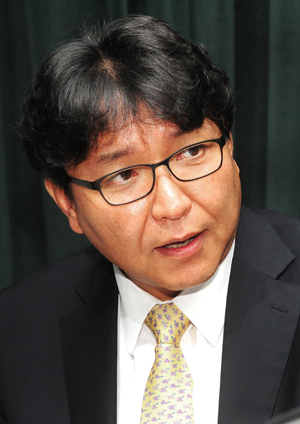Dr. Song's medbiz column
It has already been 100 days since the inauguration of the new government of President Moon Jae-in, who came into power with the Korean people’s so-called “candlelight revolution.” Moon’s new policies and moves, which were not conceivable under the former Lee Myung-bak and Park Geun-hye administration, are making headlines. While the former conservative administrations focused on accumulation of wealth and economic growth, the current administration puts more focus on wealth distribution, welfare and equality.

Considering the new government’s political background and the liberal stance of the ruling Minjoo Party of Korea (Democratic Party of Korea), these new moves were already anticipated. Even without quoting the dialectics, in the current situation where the past ten years of conservative administrations collapsed in the candlelight revolution and with the birth of the progressive administration, it is difficult to deny that we are in the synthesis phase of thesis-antithesis-synthesis. These facts could be seen as the process of history development, but what I am concerned about is the speed.
When I take a look at the medical policy so-called “Moon Jae-in care,” I do not think that my worries about the speed will not easily go away. Moon has already told the public that they can get the best medical services at lower price. This is definitely attractive to the public and he has obviously won the support of the participants of the candlelight demonstrations. However, his assessment on its feasibility has been put on the back burner.
Hegel said that history is “the process in which Geist comes to absolute self-realization.” If Moon has an absolute Geist, or mind, on the medical care, he should embody them and make it realize as detailed policies. The absolute Geist that was originally thought may not change but policies realized afterwards may differ from the ones that were initially thought. The process of realizing this absolute Geist of history cannot be achieved overnight.
I can clearly say that there will be no doctors who oppose to the Moon Jae-in care where the treatments are to be covered by insurance and the health and social security is to be strengthened.
However, discussion should come first on how to make the appropriate health insurance cost structure where a reasonable profit can be guaranteed. In principle, I agree with his idea of expanding health insurance coverage but there is no consensus made on the scope of the essential medical care.
The government said they will start a concrete discussion from now on. However, the president announced the plans in so much details that I do not think the government officials and the medical industry will easily come to an agreement for details. Whatever the doctors say, government officials will definitely will push Moon’s detailed plans anyway in the end. The health insurance fee, raised by the separation of drug prescribing and dispensing, has returned to its place along with the breakdown of NHIS (National Health Insurance Service) finances. Consequently, doctors have come to distrust the government, especially the Ministry of Health and Welfare.
In principle, the president should set the direction only and specific details should be discussed and considered by consumers and providers of the medical services industry. It is the government officials’ role to review whether such policy is feasible in terms of finance based on their past experience. Also, the government should keep in mind that the policy of separating drug prescribing from dispensing in 2000 has failed to achieve its original purpose.
Finally, the medical policy, especially the policy on the payment system is a task which can never be completed or realized within one administration. The government may want to finish it sooner, but they have to take the long way around.

